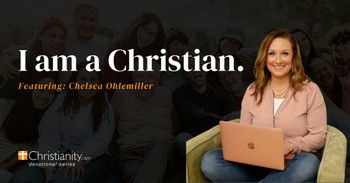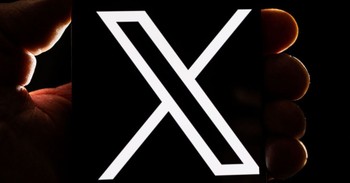One of the most talked-about shows on television is “The Handmaid’s Tale.” This Hulu series, based on Margaret Atwood’s 1985 novel of the same name, has been called “timely” and “essential viewing for our fractured culture.”
Perhaps, but definitely not in the way that critics suppose.
The context of Atwood’s dystopian novel is the theocratic successor to the United States called the “Republic of Gilead.” Gilead is a kind of evangelical Saudi Arabia, where women are forbidden to read, and select women, the “handmaids” of the title, are given as concubines to high-ranking officials for purposes of breeding.
Now, when Atwood’s novel was published three decades ago, its conjuring of a theocratic United States was, to put it charitably, overwrought. And today, that idea is, to put it charitably once more, absurd.
The countries closest to this sort of treatment to women are clearly Islamic countries. American women today are in absolutely no danger of losing their freedoms, especially so-called “reproductive freedom.” Abortion may be, in some places, a bit inconvenient, but it’s still legal and widely available. Contraceptives have never been easier to obtain, and you can even get the so-called “morning after pill” without a prescription.
So to call “The Handmaid’s Tale” “essential viewing for our fractured culture,” only illustrates just how out of touch with reality a certain class of Americans has become.
Not to mention blind. In addition to the barbaric treatment of women in many Islamic countries, there’s another way that this series and the novel it’s based on are “timely,” but it’s the result of increased “reproductive freedom,” not its curtailment.
In fact, that timeliness was explained in an article in Britain’s left-wing magazine written by a feminist who goes by the pen name of “Glosswitch.”
The author, after taking note of all the invocations of Atwood’s novel following last November’s elections, writes, “There’s something about the current wallowing in Atwood’s vision that strikes me as, if not self-indulgent, then at the very least naive.”
She then cites a book published the same year as “The Handmaid’s Tale” which predicted that “Once embryo transfer technology is developed, the surrogate industry could look for breeders—not only in poverty-stricken parts of the United States, but in the Third World as well. There, perhaps, one tenth of the current fee could be paid to women.”
Unlike Atwood’s so-called “prophecy,” Glosswitch’s prophecy was the one that came to pass. “Today there are parts of the world in which renting the womb of a poor woman is indeed ten times cheaper than in the US. The choice of wealthy white couples to implant embryos in the bodies of brown women is seen . . . as a neutral consumer choice.”
Another name for this “consumer choice” is “surrogacy tourism.” In India, the number of women renting their wombs for affluent white foreigners was so high that the government enacted a law limiting the practice to Indian couples. All that did was open the “market” to other desperate Third World women.
“Glosswitch” wonders “why, if the fate of the fictional [handmaid] is so horrifying to western feminists today, the fate of real-life women in surrogacy hostels is causing so little outrage?”
The most likely reason, apart from self-centeredness, is that, in the West, freedom and “reproductive freedom,” which means complete control over one’s sexual choices and its consequences, are synonymous. To question any practice or technology, such as surrogacy or the in-vitro fertilization that facilitates this control, is to call our ideas about freedom and autonomy into question.
And protecting those ideas requires a willful blindness to the fact that, as the New Statesmen put it, parts of Atwood’s tale “have already come true—just not for white Western women.”
BreakPoint is a Christian worldview ministry that seeks to build and resource a movement of Christians committed to living and defending Christian worldview in all areas of life. Begun by Chuck Colson in 1991 as a daily radio broadcast, BreakPoint provides a Christian perspective on today’s news and trends via radio, interactive media, and print. Today BreakPoint commentaries, co-hosted by Eric Metaxas and John Stonestreet, air daily on more than 1,200 outlets with an estimated weekly listening audience of eight million people. Feel free to contact us at BreakPoint.org where you can read and search answers to common questions.
John Stonestreet, the host of The Point, a daily national radio program, provides thought-provoking commentaries on current events and life issues from a biblical worldview. John holds degrees from Trinity Evangelical Divinity School (IL) and Bryan College (TN), and is the co-author of Making Sense of Your World: A Biblical Worldview.
Photo courtesy: Wikipedia
Publication date: May 22, 2017



